MercoPress. South Atlantic News Agency
Environment
-
Tuesday, June 20th 2023 - 11:00 UTC
Lacalle Pou decrees water emergency in Montevideo metropolitan area

Uruguayan President Luis Lacalle Pou Monday announced new measures to face the water crisis after a cabinet meeting, it was reported in Montevideo.
-
Tuesday, June 20th 2023 - 10:53 UTC
U.N. adopts historic agreement on Marine Biodiversity; 'new hope for the oceans,' Guterres
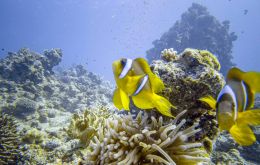
The United Nations on Monday adopted a historic agreement for the conservation and sustainable use of marine biodiversity of areas beyond national jurisdiction which cover over two-thirds of the ocean.
-
Tuesday, June 20th 2023 - 10:50 UTC
BAS new ten-year strategy, Polar Science for a Sustainable Planet

The British Antarctic Survey (BAS), is launching on Monday 19 June, its new ten-year science strategy that addresses urgent scientific challenges facing our world, namely in the continents of the Arctic and Antarctic and the impact that the Polar Regions have across our planet.
-
Tuesday, June 20th 2023 - 10:25 UTC
Brazil: Electricity generation from sugarcane biomass on the rise
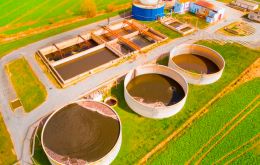
According to a study by Brazil's Sugarcane and Bioenergy Industry Union (Unica) released Monday, electricity generation from sugarcane biomass grew 28.7% in the first four months of 2023, reaching 1,858,699 MWh, which is tantamount to 3% of all the energy in the South American country, Xinhua reported.
-
Monday, June 19th 2023 - 10:02 UTC
Swiss voters fearing melting glaciers vote to become carbon neutral by 2050
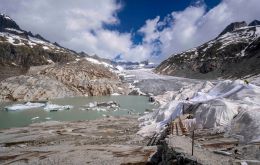
Swiss voters on Sunday supported a new climate bill aimed at combating the melting glaciers and requiring the country to become carbon neutral by 2050. Leading Swiss glaciologist Matthias Huss, who has closely followed the glaciers' decline, tweeted that a “strong signal” had been sent, adding he was ”very happy the arguments of climate science were heard.
-
Monday, June 19th 2023 - 08:09 UTC
At least 13 killed in southeastern Brazil storm
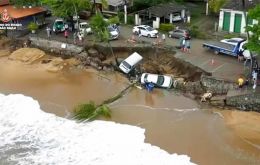
At least 13 people died and 4 others were reported missing in southeastern Brazil Sunday due to storms and floods caused by the passage of an extratropical cyclone (low-pressure system), according to local authorities.
-
Wednesday, June 14th 2023 - 10:40 UTC
Produce from deforested areas banned from EU, beginning 2025
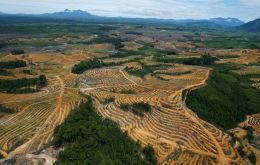
The European Union (EU) finally approved a regulation prohibiting the entry of agricultural items, including coffee, soy, and beef, produced after 2020 in deforested areas, regardless of whether legally compliant with the producing country’s national legislation. The regulation will come into effect on December 30, 2024.
-
Wednesday, June 14th 2023 - 10:22 UTC
What is killing the animals at Chile's Humboldt Reserve?

Due to avian flu, what used to be a vacation spot in northern Chile full of tourists sighting the marine fauna has become the ground where sanitary brigades look for dead birds likely killed by the deadly virus following the closure of the Humboldt Penguin National Reserve, in the Coquimbo region.
-
Sunday, June 11th 2023 - 14:21 UTC
Trust fund no loss of sovereignty over Galapagos Islands, Ecuadorian gov't argues

Ecuadorian authorities Saturday denied that a recent debt swap through the creation of the Galapagos Life Fund (GLF) trust entailed the loss of sovereignty over the Galapagos Islands as a newspaper claimed.
-
Saturday, June 10th 2023 - 10:43 UTC
Canada wildfires smoke reducing solar power and New England summer heat

Solar power generation in the northeast United States is tumbling by more than 50% as a result of the smoke from eastern Canada wildfires. On Thursday ISO New England, the operator of the grid, said solar power generation in New England was 56% below last week during times of peak demand.
